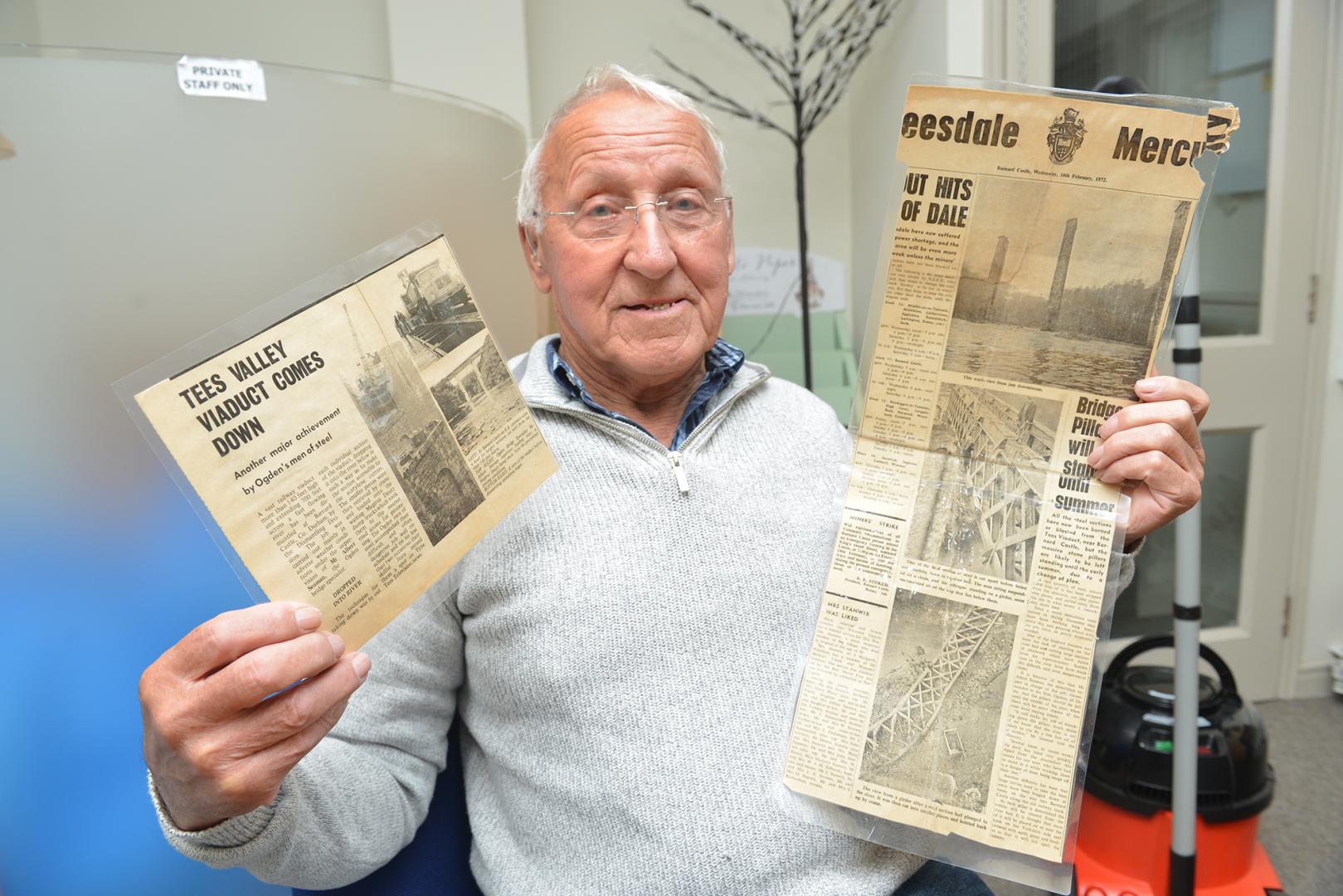A FOREMAN who oversaw the dismantling of the Tees Viaduct has recalled how his crew worked through extreme weather to bring down the iconic landmark.
Geoff Geldard was employed by Otley based firm Ogdens when he worked with a small band of about six to remove the iron girders of the railway bridge and its stone pillars. Work began late in 1971 and continued through the winter until it was completed early in 1972. He said people were not happy about it being torn down, but the work was necessary because the structure was unsafe.
The 82-year-old said: “We got called all sorts of names but it was rotten and would have fallen down eventually. It was sad because it was a landmark. When we saw it we thought it was alright, but when it came to stripping it down we could see why it needed to come down. The rust was well away.”
Mr Geldard managed a wagon while another crew member worked a crane. The remainder of the workforce were “burners” who used acetylene torches to cut through the steel before allowing it to fall 140ft to the river below.
Mr Geldard said: “It would come down with a big bang. We must have been mad [working at that height]. It was cold – we would sometimes have to wait a day or two until it thawed.”
The work had to be done in the winter when the river was at its lowest so that the fallen steel could be salvaged.
The Teesdale Mercury reported the completion of the removal of the iron sections of the viaduct in February 1972 and described the crew as “Ogden’s men of steel” .
The newspaper reported: “All the steel sections have been burned or blasted from the Tees Viaduct, near Barnard Castle, but the massive pillars are likely to be left standing until the early summer due to a change of plans.
“A vast quantity of steel, almost 1,000 tons of it, has been stripped from the structure, cut into moveable pieces, and carted away from the site in what seems a remarkable short time.
“Since the small team moved in December they have been working long hours every day and pressing ahead with the job, often in pretty miserable conditions.”
Despite the hardship Mr Geldard said he made a lot of good friends in Barney with the crew living in caravans behind the Red Well Inn, and enjoying their dinners at the late John Hinchcliffe’s cafe in the town. Mr Geldard shared his memories during a visit to the town from his home in South Yorkshire.
ADVERTISEMENT
Men of steel’ foreman recalls demolition of Tees Viaduct
ADVERTISEMENT
ADVERTISEMENT
ADVERTISEMENT






